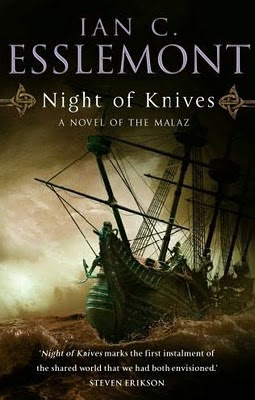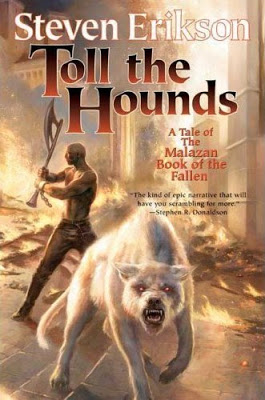
This blog post was a long time coming, but I was pretty busy and didn't have the time its writing deserved. My company was invited to a team building weekend in Berlin by our Dutch partner and so I went there last Thursday for about four days. Here are my impressions.
The first feeling that I got coming from the airport by bus was that Berlin is a real city. Not some bullshit tourist attraction, but a place where people live, work and have fun. The combination of factories in the periphery and the new and old styles of the buildings was very pleasing to my eyes. I was, however, convinced that we are at the very edge of the German capital city and so that explained both the "realness" and the small number of people and cars that I was seeing. I was quite a bit shocked to reach the hotel and having the feeling still firmly rooted in my psyche. The hotel, Berlin, Berlin, was somewhere in the southwest of the city, but as close to the center as to the outskirts. Where were the people, the cars, the chaos, the multitudes of banks and pharmacies, the angry honking, the infernal traffic and the tall buildings one comes to expect in a modern city?
Well, it appears that is something rare in Berlin, be it the East or the West side of it. A lot of people use bikes, on lanes that are both on the sidewalk and the car side, there are amazingly few cars and people don't seem to get angry very often. I heard only three honks my entire stay there. The streets are also pretty empty, be it weekend or work day, however the restaurants and public transportation stay active even beyond midnight. It is more of a cultural city, than an industrial one, but I still liked it :)
The buildings are rarely very tall, if one excludes the TV tower, the 200 meter construction that was supposed to show to the West the great technical skill of Eastern engineers. Since Berlin is built on a former marsh (hence the name, which comes from a Slavic word for swamp, not from the bear mascot of the city, which itself comes from Albert the Bear, member of House of Ascania) it might be the reason why Berlin has expanded more horizontally than vertically. It might explain also why the great communist engineers needed to secretly employ Swedish techs to help them out with the TV tower.
As I said, the bars and restaurants (of all nationalities and flavours) are open till very late. Some are a bit expensive (like 4 euro the cheapest beer and 8 euros for a cocktail in a bar we went to in the first evening) some are too cheap, like the Japanese sushi which is more expensive in Bucharest or a Turkish kebab that I took for 3 euros when exiting the above bar. When we left the bar they didn't have beer on tap anymore, we drank it all, and not because of huge excesses. So I asked the owner: "Are you kidding me? A bar in Germany without beer?". The poor guy glared at me for a second they retorted "We are not in Munich, we are in Berlin". It seems the capital of the country is not really characteristic for the whole of Germany. It makes me cringe in horror to wonder if people outside Romania judge the country based on anecdotal stories of provincial attitudes. Ouch!
You have to understand, there are a lot of Romanians who like to bash their own country, to dream of greener pastures right beyond the border or consider everything in Romania shit. I am not one of those people, I like being Romanian and I enjoy living in Bucharest, but frankly, after going to Berlin, I think I would enjoy living there more!
Also, it was a bit shocking for us to see that, after a certain hour, every street became adorned with young women dressed provocatively. Most of them were really hot, although the quality fluctuated wildly. It was amazing to see police cars passing by and ignoring the working girls. We noticed three especially beautiful girls and one of our group went to say hello, so they answered... in Romanian. Is it any wonder that I like living in Bucharest? :)
Anyway, speaking of girls, there were the rare cases of tall blue eyed blond German girls in the city (although one wonders if not every one of them was actually Polish or something), but the vast majority of women there are either immigrants or plain (to use a polite euphemism). What I found especially weird is that younger girls seemed to be fatter than the older ones. If my eyes got drawn by an attractive figure, it was immediately revealed that the person in question was above forty... or Asian.
People in Berlin understood English mostly, although there was a large portion of the serving staff that struggled with it. TV was voice dubbed in German on every channel, so I didn't find it surprising. Amazingly, I understood quite a lot of the language; I was afraid that my TV knowledge of German had vanished from my brain just as Bulgarian did, so I was pleasantly surprised by this.
There was a lot of sight seeing and history lessons from our guides. We went on a bicycle ride with an American woman with Asian roots in her genealogy and it was a bit ironic to get the explanations about Berlin's history from her. But she was cool. If you want history, just go on Wikipedia, though. Enough said, during war or occupation, Germans, English, French, Russians or Americans behaved in the same way: ugly, petty, disregarding the qualities we call "humanity" completely, ridiculously accusing each other of evil while perpetrating the exact same acts on all sides.
No pictures, as I did not bring my photo camera with me. I might use some from my colleagues, but I don't think pictures could do justice to the feeling of peace I got in the city of Berlin. I really liked it.
 I am not much of an art guy, but this thing just blew me away. Not so much the animation itself (it is very original, but... not an art guy) as the volume of effort and work this had to require. Just watch it, it is worth it.
I am not much of an art guy, but this thing just blew me away. Not so much the animation itself (it is very original, but... not an art guy) as the volume of effort and work this had to require. Just watch it, it is worth it.





